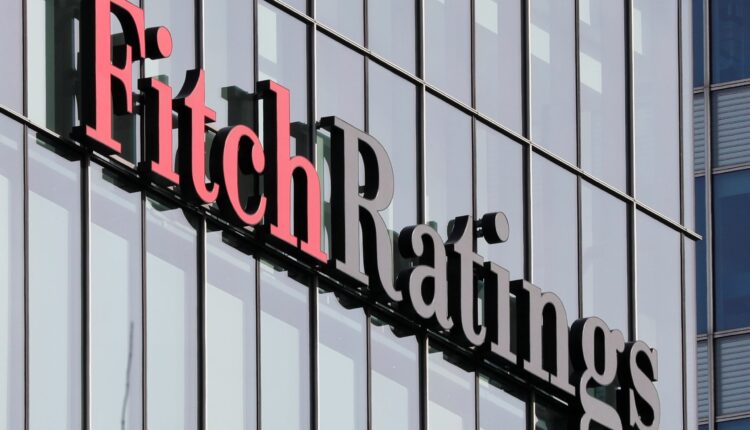Fitch Ratings has affirmed the Long-Term Issuer Default Ratings (IDRs) of Standard Bank Group Limited (SBG) and its main operating subsidiary, the Standard Bank of South Africa Limited (SBSA), at ‘BB-‘. The Outlooks are Stable.
Fitch also downgraded SBSA’s Government Support Rating (GSR) to ‘ns’ (no support) from ‘b+’, and removed it from Rating Watch Negative. The downgrade follows a recent adoption of resolution legislation in South Africa, which sets a credible framework for the bail-in of senior creditors in the event of bank failures, making government bail-outs of banks highly unlikely. This underpins its view that there is no reasonable assumption that government support will be forthcoming.
SBG and SBSA’s IDRs are driven by their standalone creditworthiness, as expressed by their Viability Ratings (VRs) of ‘bb-‘. The VRs reflect SBG’s leading domestic and regional franchise, strong profitability and comfortable capital buffers and liquidity.
However, the assigned VRs are one notch below the implied VR of ‘bb’ due to the following constraint: Operating Environment/Sovereign Rating. This underlines the concentration of activities in South Africa and high sovereign-related exposure relative to capital (222% of SBSA’s equity at end-1H23). The Stable Outlooks on the Long-Term IDRs mirror those on South Africa.
The National Ratings reflect the entities’ creditworthiness in local currency relative to that of other South African issuers. They are in line with all other rated banks in the country.
VRs Equalised with Group VR: SBG is a non-operating bank holding company (BHC). Its VR is equalised with the group VR of ‘bb-‘, reflecting the consolidated risk assessment of the group, due to moderate double leverage (109% at end-2022) and high fungibility of capital and liquidity. SBSA’s VR is also equalised with the group VR as it is the main operating entity (61% of group assets at end-2022).
Sluggish Economy
Fitch expects 0.5% real GDP growth in 2023 (2022: 1.9%), before a mild recovery of 0.9% in 2024, due to energy crisis impacts, deteriorating net exports and slowing domestic demand amid subdued private consumption. Banks’ revenues benefit from policy rate increases but risk costs are higher due to weakened borrowers’ resilience.
Leading Domestic Franchise, SBG has a leading domestic franchise through its main operating entity, SBSA, which accounted for 24% of South African banking system assets at end-1H23. SBG has a leading sub-Saharan Africa franchise, with operations spanning 19 other sub-Saharan African countries. Revenue diversification is strong by income stream and geography.
Retail lending represented 40% of gross loans at end-1H23. It is concentrated within South Africa and largely comprises floating-rate residential mortgages extended at high loan/value ratios (90% in 1H23).
SBG’s Fitch-adjusted impaired loans (Stage 3 loans under IFRS 9) ratio increased to 6.5% at end-1H23 from 5.5% at end-2021 as the effects of high interest rates, higher inflation and severe load shedding fed into the lending book. We expect the impaired loans ratio to stabilise by end-2023.
Strong Profitability
Strong profitability is supported by a wide net interest margin, large non-interest income and moderate loan-impairment charges. Operating returns on risk-weighted assets rose to 3.5% in 2022 from 2.8% in 2021, underpinned by wide net interest margins.
SBG’s common equity Tier 1 ratio of 12.2% at end-1H23 (excluding unappropriated profits) is comfortably above the regulatory minimum. Pre-impairment operating profit over average loans (5.9% in 1H23) provides a large buffer to absorb potential loan impairment charges.
Fitch-adjusted customer deposits represent the main source of funding (74% at end-1H23). Depositor concentration is fairly high but behavioural stability benefits from a leading domestic franchise. We consider liquidity coverage healthy.
Factors that Could, Individually or Collectively, Lead to Negative Rating Action/Downgrade: SBG and SBSA’s Long-Term IDRs and VRs are constrained by South Africa’s rating, meaning that a sovereign downgrade would lead to downgrades for the bank’s and the BHC’s VRs and IDRs.
A downgrade of the Long-Term IDRs and VRs may also result from a material weakening in capitalisation, as indicated by a decline in SBG’s common equity Tier 1 ratio below 10%, which could stem from greater-than-expected asset-quality deterioration or more aggressive shareholder distributions.
SBG’s VR could be notched off the group VR if the BHC’s double leverage increases above 120% for a sustained period without clear prospects for moderation. SBG and SBSA’s National Ratings are sensitive to changes in their creditworthiness relative to other South African issuers.


Comments are closed.